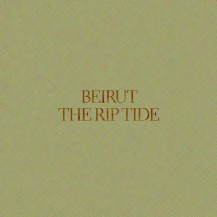Beirut’s “The Rip Tide”
“The Rip Tide delves deeper into Condon’s mind, and also boasts his composing capabilities.” -Hannah Cook
Hannah Cook
7.6
out of 10
Beirut
The Rip Tide
Aug. 30, 2011
Pompeii Records
Zach Condon is the perfect example of a person truly enlivened by the world around him. Once a teenager recording rough tunes in his New Mexico bedroom, the mastermind behind Beirut, now from Brooklyn, NY, has completely swallowed his musical and worldly endeavors to create music that is still just as colorful, but more personal and intuitive. A handful of EPs and two full-lengths later, Condon and his bandmates have composed The Rip Tide—what is, to this day, Beirut’s greatest feat.
The album was released on Condon’s own label, Pompeii Records, which gave the band complete control over the writing and release process. The Rip Tide represents the band’s autonomy, and what mature essence came of it.
It’s plain to see Beirut’s progress from The Flying Club Cup (2007). Condon’s voice is more confident, the music bolder; however, they stuck to what they knew on The Rip Tide—glowing horn riffs, string sinfoniettas, and playful melodies all-round. They didn’t forget the intrigue in gypsy-esque sounds, but they seemed to grasp bigger places as well, like the sea.
Take “Payne’s Bay” for instance, which is reminiscent of Columbus’s Mayflower, journeying to the wonderlands, beaming with pride as it sways over blue, blue waves. It begins with string instruments that sound something like a departure, but soon, a lovely organ joins in, followed by a soft horn, pitter-patting drumming and Condon’s healthy voice. The song dies down, only to start again with a noble horn number and spontaneous crashing of symbols, with Condon singing over and over “headstrong, today, I’ve been headstrong.” At this point, Beirut has painted a prefect picture, has written a story in less than four minutes.
Condon got a lot craftier with his vocals on this album. One could still swear he’s not from America, given that odd, but healthy voice of his. But the lyrics seem cleverer, especially with the use of repetitiveness.
“East Harlem,” the album’s single, is a fine example of that. A wobbly organ introduces the song, then bouncy piano chords, ukulele plucks and drums chime in. After each verse, joyous trombones and horns sound. These pleasantries support Condon’s handsome voice, which sings the same verse three times—”Another rose wilts in East Harlem / And uptown downtown a thousand miles between us / She’s waiting for the night to fall / Let in fall, I’ll never make it in time.”
The album loses its sense of joy with “Goshen,” which seems to display some sort of internal battle between emotional highs and lows. The song, at first, consists solely of Condon and a piano laden with somber. When the song picks up with marching drums and stately horns, the happier moments in life join in. Though Beirut does bleak songs well, they do sunny songs better.
The Rip Tide delves deeper into Condon’s mind, and also boasts his composing capabilities. While the band sticks to its true nature—the worldly melodies—they’ve become somehow even more spirited, more self-aware than their prior release over four years go. It certainly took a lot of time, but it was time well spent.
